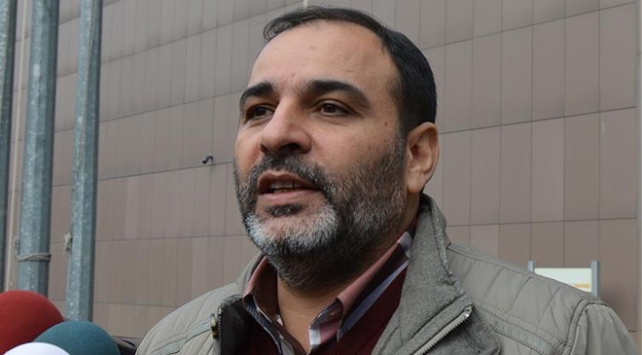The government of Turkish President Recep Tayyip Erdoğan is behaving like Russian President Vladimir Putin’s “Trojan horse” inside NATO, trying to weaken the alliance from within, a Turkish journalist whom Erdoğan wants extradited before approving Sweden’s bid to join NATO wrote for the German Die Zeit news website.
Swedish Prime Minister Ulf Kristersson was in Ankara on November 8, hoping to persuade Turkey to drop its opposition to Sweden joining NATO, with Ankara accusing Stockholm and Helsinki of harboring political dissidents who are labelled as “terrorists” by Turkey.
Among them is Bülent Keneş, an academic and the former editor-in-chief of the now-closed English-language Today’s Zaman daily and also an outspoken critic of Erdoğan’s government.
Erdoğan said just as Sweden wants to join NATO for its security, Turkey wants Sweden to take steps to help Turkey eliminate its concerns about its security.
“Issues such as the number of the terrorists who will be extradited to Turkey, 30 or 100, are things open to discussion. The deportation of the terrorist named Bülent Keneş is of importance to us,” Erdoğan said at a news conference with Kristersson.
“Erdoğan’s regime is acting like Vladimir Putin’s Trojan horse within the transatlantic alliance, taking one step at a time to weaken NATO from within. This includes the purchase of the Russian S-400 missile system at the expense of being excluded from the US’s F-35 Joint Strike Fighter program and the escalation of tensions with NATO member Greece,” Keneş wrote for Die Zeit.
Despite warnings from the United States and other NATO allies, President Erdoğan brokered a deal worth $2.5 billion with Russian President Vladimir Putin for the S-400 missile system in 2017.
Turkey started taking delivery of the first S-400s in July 2019 despite Washington’s warnings and the threat of US sanctions. In response, Washington removed Turkey from the F-35 Joint Strike Fighter program, in which Ankara was a manufacturer and a buyer. Turkey has not used the missile system since its purchase.
The S-400, a mobile surface-to-air missile system, could pose a risk to the NATO alliance as well as to the F-35, America’s most expensive weapons platform, according to Turkey’s Western allies.
“Western democracies are much stronger than Erdogan’s fragile regime,” Keneş wrote, criticizing them for repeatedly showing weakness “by not calling his bluff” and possibly playing into his hands.
“Coupled with Turkey’s economic ties to Europe, the democratic NATO powers can still exert significant influence in keeping Erdoğan in check. It just takes more cooperation, courage and determination to use this remedy. And such a determined stance would send a strong message not only to Erdoğan but to all aggressive regimes in the world.”
A non-binding deal Sweden and fellow NATO aspirant Finland signed with Turkey in June commits them to “expeditiously and thoroughly” examine Ankara’s requests for suspects linked to the Gülen movement and the outlawed Kurdistan Workers’ Party (PKK), which is recognized as a terrorist organization by Turkey and much of the international community.
Keneş is accused by the Turkish government of links to the Gülen movement, labelled by the Turkish government as the mastermind of a failed coup in 2016 and a “terrorist organization.” The movement strongly denies any involvement in the failed putsch or terrorist activity.
Today’s Zaman, a sister newspaper to Turkey’s best-selling newspaper Zaman, was closed down by the government in the aftermath of the coup attempt in addition to dozens of other media organizations due to their links to the movement.
Both Swedish and Finnish government officials said they will continue to respect national and international laws regarding Turkey’s extradition requests and that the decision for extraditions will be up to independent authorities and the courts.
Keneş was also targeted last month by the pro-government Sabah daily, which revealed his home address and secretly taken photos in Stockholm.
The journalist left Turkey in the aftermath of the coup attempt to avoid a government-led post-coup crackdown targeting critical journalists as well as non-loyalist citizens.

